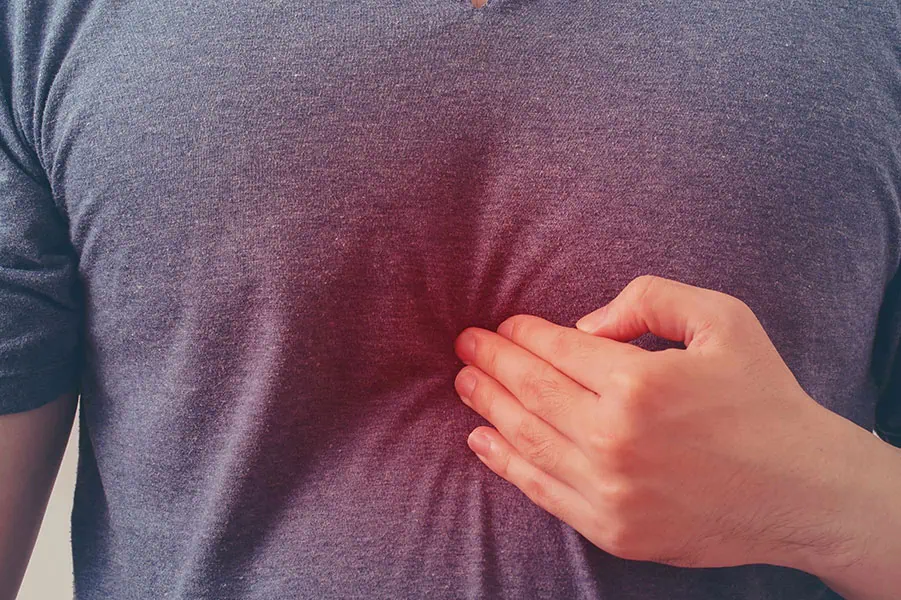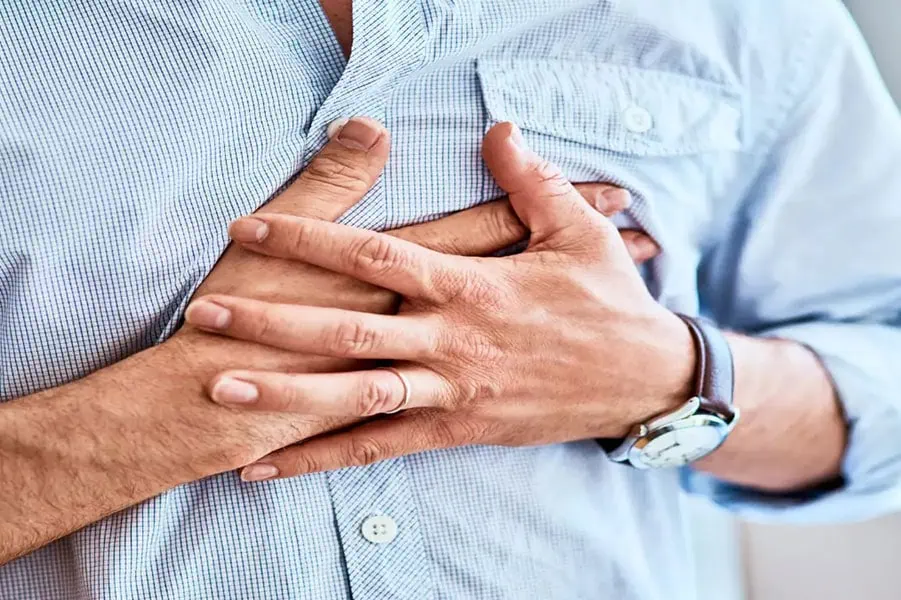Pain in Middle of Chest: Top Causes & Symptoms


Experiencing pain in the middle of your chest can be alarming and often leads to concerns about heart health. However, chest pain can stem from various causes, ranging from minor issues to serious medical conditions. In this article, we’ll explore the common causes of pain in the middle of the chest, their symptoms, and when you should seek medical attention.
Pain in Middle of Chest
Pain in the middle of the chest, also known as midsternal pain, can manifest in different ways. It may feel like a sharp stabbing sensation, a dull ache, or a burning feeling. The pain might be constant or intermittent, and it could worsen with movement or breathing. Understanding the nature of your chest pain can help in identifying its potential cause.
What causes pain in the middle of the chest?
There are several potential causes for pain in the middle of the chest. Let’s explore some of the most common ones:
1. Excess gas
Excess gas in the digestive system can cause discomfort and pain in the chest area. This type of pain is often accompanied by:
- Bloating
- Belching
- Flatulence
- A feeling of fullness in the abdomen
The pain from excess gas usually subsides once the gas is released or moves through the digestive system.
2. Costochondritis
Costochondritis is an inflammation of the cartilage that connects the ribs to the breastbone. This condition can cause:
- Sharp, aching pain in the chest
- Tenderness when pressing on the affected area
- Pain that may worsen with deep breathing or coughing
While costochondritis can be painful, it’s generally not serious and often improves with time and over-the-counter pain relievers.
3. Heart attack
A heart attack is a serious medical emergency that occurs when blood flow to the heart is blocked. Symptoms can include:
- Chest pain or discomfort that may feel like pressure, squeezing, or fullness
- Pain that may spread to the arms, neck, jaw, or back
- Shortness of breath
- Cold sweat
- Nausea or vomiting
- Lightheadedness
If you suspect a heart attack, seek emergency medical attention immediately.

4. Gastritis
Gastritis is inflammation of the stomach lining. It can cause:
- Burning sensation or pain in the upper abdomen that may extend to the chest
- Nausea
- Vomiting
- Feeling of fullness in the upper abdomen
Gastritis can be acute or chronic and may be caused by various factors, including bacterial infections, excessive alcohol consumption, or certain medications.
5. Stomach ulcers
Stomach ulcers, also known as gastric ulcers, are open sores that develop on the lining of the stomach. Symptoms can include:
- Burning pain in the middle or upper stomach between meals or at night
- Bloating
- Feeling of fullness
- Nausea
- Vomiting
The pain from stomach ulcers can sometimes be felt in the chest area, especially if the ulcer is located near the esophagus.
6. Liver problems
While the liver is located in the upper right abdomen, liver problems can sometimes cause pain that radiates to the chest. Symptoms of liver issues may include:
- Pain or discomfort in the upper right abdomen
- Fatigue
- Jaundice (yellowing of the skin and eyes)
- Nausea
- Loss of appetite
Liver problems can range from mild to severe, and persistent symptoms should be evaluated by a healthcare professional.
When to worry About Chest Pain
While many causes of chest pain are not life-threatening, it’s important to know when to seek medical attention. You should worry and seek immediate medical care if you experience:
- Severe chest pain, especially if it’s accompanied by shortness of breath, sweating, or nausea
- Chest pain that spreads to your jaw, left arm, or back
- Sudden, sharp chest pain with shortness of breath, particularly after a long period of inactivity
- Chest pain accompanied by a sense of impending doom
- Loss of consciousness
Remember, it’s always better to err on the side of caution when it comes to chest pain. If you’re unsure about the severity of your symptoms, it’s best to consult with a healthcare professional.
In conclusion, pain in the middle of the chest can have various causes, ranging from minor digestive issues to serious heart problems. By understanding the different potential causes and their associated symptoms, you can better assess your condition and determine when to seek medical help. Always prioritize your health and don’t hesitate to consult a doctor if you’re concerned about chest pain or any other unusual symptoms.

